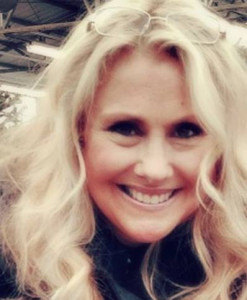Podcast: Download (42.6MB)
Kathryn Skaggs is the founder, and Angela Fallentine the co-founder of the Mormon Women Stand Website and Mormon Women Stand Facebook Page—an effort that focuses its efforts on defending the Church of Jesus Christ of Latter-day Saints, it’s leaders and its teachings by using a united voice of faithful women from the Church.
Kathryn Skaggs is a wife, mother, and grandmother. She took the Ann Romney approach to womanhood by staying home and raising her children, and making no apologies for doing so. Her online efforts started in 2008 with the blog A Well Behaved Mormon Woman where she shares her voice on a variety of social issues.
Angela grew up in Alberta Canada, and later attended Rick’s College/BYU Idaho, and Utah State U niversity with a degree in Journalism with an emphasis in public relations and corporate communications. After graduating she interned for the Church Public Affairs Office and also worked for the Church’s Office of International and Governmental affairs in Washington D.C.
niversity with a degree in Journalism with an emphasis in public relations and corporate communications. After graduating she interned for the Church Public Affairs Office and also worked for the Church’s Office of International and Governmental affairs in Washington D.C.
Both are here today to talk about what it means to be a voice on the internet, more specifically a female voice on the internet and the opportunities that effort has in sustaining Church leaders and furthering church dialogue online.
Questions we address in this interview: We are here (being recorded) at the Provo City library because you are both in town for BYU’s Education Week. How has your experience been so far?
In what ways does attending this conference help you in your efforts as a voice online in defense of the gospel and the church.
You have a combined effort that you co-founded, Mormon Women Stand. Was this a response to something in particular, the ground up inspiration to add your voice to the discourse online?
How and why is MWS different? (how many people involved and what is your audience?)
Who is the intended audience of your work with MWS?
There is an article posted on the Mormon Women Stand website entitled Chipping Away at Priesthood Authority of Mormon Prophets to Undermine Faith. This was written by Angela, but I was told by Kathryn that she shares your words. While neither of you have been guilty of too much subtlety when it comes to your online articles, I am sure the title is a bit of a giveaway, what is the genesis of the article?
The warning that you give in the article is that we need to give care and attention to the idea that the more we seek out the faults of our leaders, and they will be found as all of them will have them, the more we give place for discord, for distancing ourselves from orthodoxy. Is that accurate? What then is the remedy as many will say that there is nothing wrong with becoming aware of even the self proclaimed faults of the leaders themselves?
You give a statement in the article that might come across as strongly worded so I want to give you the opportunity to develop it further, “Is it wrong to speak ill or critically of church leaders or of a talk they give in General Conference? Yes. How serious is speaking and writing against the leaders of the Church? Very serious.”
You give in support of the thesis and title of your article, a quote from Elder Dallin H. Oaks, “Criticism is particularly objectionable when it is directed toward Church authorities, general or local. Jude condemns those who ‘speak evil of dignities.’ (Jude 1:8.) Evil speaking of the Lord’s anointed is in a class by itself. It is one thing to depreciate a person who exercises corporate power or even government power. It is quite another thing to criticize or depreciate a person for the performance of an office to which he or she has been called of God. It does not matter that the criticism is true. … When we say anything bad about the leaders of the Church, whether true or false, we tend to impair their influence and their usefulness and are thus working against the Lord and His cause.”
You encounter people everyday leaving comments on your articles and your accompanying Facebook posts. You are actively engaged in online discussion, which leads me to Elder Bednar’s talk here at Education Week regarding the proper use and role of social media online. In what ways has that presentation effected you, in what ways might you change and in what ways did you find yourselves affirmed by his presentation?
Kathryn Skaggs is the founder and Angela Fallentine the co-founder of Mormon Women Stand, found at mormonwomenwomenstand.com.




